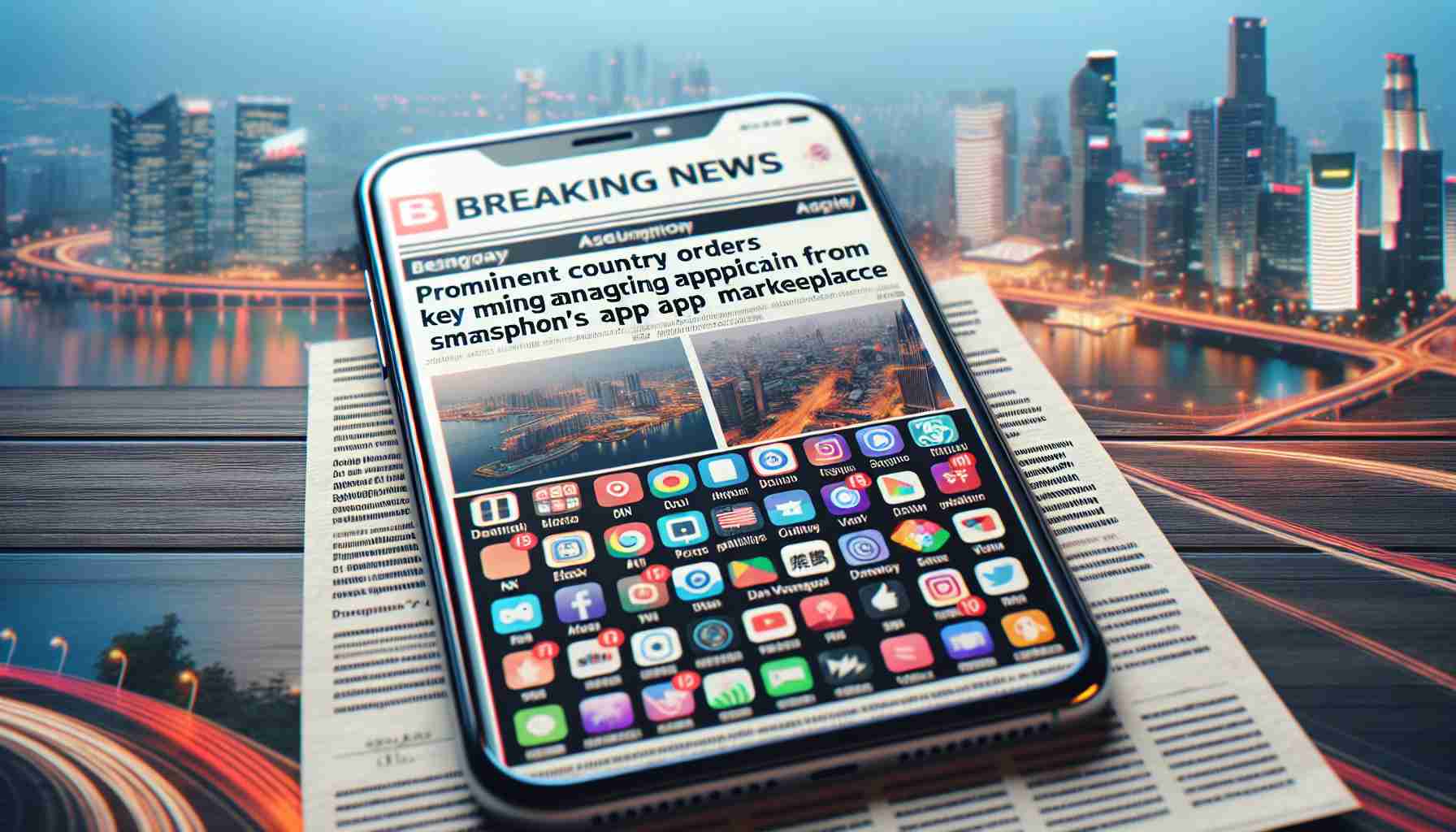Apple has complied with a directive from Chinese officials, resulting in the elimination of various prominent messaging applications, including WhatsApp, from its App Store in China. The move came after Chinese authorities raised red flags over these apps, attributing them as potential threats to the country’s national security.
The precise roster of apps affected extends beyond WhatsApp, implicating Meta’s Threads and other encrypted messaging services such as Signal, Line, and Telegram. Apple’s decision to remove these applications from its digital marketplace in China was made public through engagement with the media, where they expressed their commitment to adhering to the legal frameworks within the countries they operate, despite any internal corporate disagreements with such policies.
Reports surfaced from an informed individual, pointing to content shared on WhatsApp and Threads that was deemed unacceptable by Chinese regulators, specifically materials concerning China’s leader Xi Jinping that did not align with the nation’s tight internet control regulations.
End-to-end encryption, a security feature that shrouds conversations from external scrutiny, was a commonality among the banned messaging apps. How this feature influenced the Chinese authorities’ decision remains speculative. Notably, Apple’s proprietary communication services like iMessage and FaceTime also incorporate end-to-end encryption, but with significant data operations located within China, they fall under a different set of compliance requirements regarding user privacy.
As these events unfold, attention pivots to the United States, where lawmakers are preparing to deliberate on a bill that could potentially lead to a U.S. prohibition of TikTok for alleged national security risks – a narrative similar to the rhetoric applied by Beijing for the recent app removals. The proposed bill demands TikTok’s Chinese parent company to divest or face exclusion from the American market, an initiative that has been openly criticized by the Chinese government.
The topic of China’s decision to mandate the removal of major messaging apps from Apple’s App Store has several key questions and related challenges:
Key questions:
– What prompted Chinese authorities to demand the removal of these apps?
– How does this decision affect Apple’s operations and consumer access to messaging apps in China?
– What are the broader implications for internet freedom and privacy in China?
– How does Apple’s compliance align with its stated commitment to user privacy and free expression?
Key challenges and controversies:
– Balancing corporate compliance with local laws and international human rights standards poses a significant challenge for companies like Apple.
– Censorship and internet control in China have been long-standing issues, raising concerns among nations and human rights organizations.
– The global debate around encryption, privacy, and government oversight is intensified by such decisions, affecting global technology and policy discussions.
Disadvantages:
– Users in China lose access to secure communication platforms, impacting their privacy and freedom of speech.
– Censorship strengthens the control of information by the Chinese government, limiting the diversity of perspectives available to its citizens.
– Companies complying with such demands may face criticism from international audiences and human rights advocates.
Advantages:
– Compliance with local laws may be necessary for companies to continue operating in a particular jurisdiction, which can be essential for their financial performance and shareholder interests.
As the situation develops, particularly with the parallel considerations in the United States regarding the TikTok ban, it highlights the growing global contention about the role of technology platforms in geopolitics and national security.
For further reading on broader issues that touch on internet freedom and privacy, the following main domains might be of interest:
– Amnesty International
– Human Rights Watch
– Electronic Frontier Foundation
– American Civil Liberties Union
Please note that these are links to the main domains of organizations that frequently address topics related to human rights, privacy, and internet freedom. These organizations are generally recognized as reputable sources and authorities on these issues.
The source of the article is from the blog kunsthuisoaleer.nl
